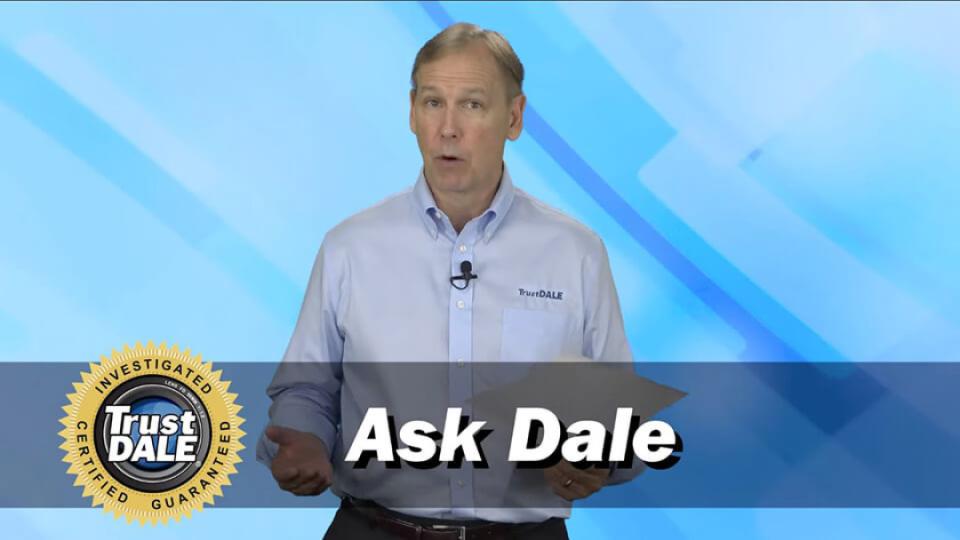With the rise of the internet, scammers have found new ways to deceive even the most vigilant individuals. Creating a professional-looking website has become an essential tool for scammers to gain the trust of their targets. In this article, we will explore the techniques scammers employ to craft deceptive websites, using a real-life example of how Dale helped a follower identify whether a farming-related materials website was legitimate or not. Let's delve into the world of scammers and their crafty tactics.
The Growing Threat of Online Scammers:
Scammers have become increasingly sophisticated, taking advantage of technological advancements to create websites that appear authentic and trustworthy. Their ultimate goal is to exploit unsuspecting individuals by tricking them into sharing personal information or making purchases on fraudulent platforms. These scammers can target any industry, using persuasive marketing techniques and exaggerated claims to lure their victims.
Unmasking a Potentially Deceptive Website:
Dale, a self-proclaimed expert in identifying online scams, was recently approached by a concerned follower seeking advice on a website that claimed to sell farming-related materials. Let's examine Dale's step-by-step investigation of the website to expose any red flags that could indicate a scam.
Authenticity of the Website Design:
Dale commenced his investigation by scrutinizing the website's overall design and layout. Scammers often invest time and resources in creating visually appealing websites that mimic genuine platforms. However, upon closer examination, Dale noticed slight inconsistencies, such as the "About us" page not providing any real context. These inconsistencies were subtle, yet served as red flags indicating a potential scam.
Lack of Contact Information and Customer Support:
Legitimate businesses prioritize effective customer service and make it easy for customers to contact them. Dale explored the website's pages in search of relevant contact information or customer support options. Surprisingly, he discovered there was a fake address listed on the "Contact Us" page that doesn't exist. The falsification of these essential details raised suspicions regarding the website's legitimacy.
Exposing the Deception
After conducting a thorough investigation, Dale concluded that the website selling farming-related materials was indeed a scam. The combination of inconsistencies in the website's content to its ability to contact them all pointed to a deceptive scheme. Dale advised his follower to steer clear of the website and warned against making any purchases or sharing personal information.
Protecting Yourself from Online Scams:
Identifying online scams can be challenging, but with awareness and cautiousness, you can greatly reduce the risk of falling victim to these deceitful practices. Here are some essential tips to protect yourself:
1. Research extensively: Before making any purchase from an unfamiliar website, conduct thorough research to verify its authenticity and legitimacy.
2. Check for secure connections: Ensure that websites use secure protocols, such as SSL certificates, indicated by an "https" preceding the website URL, as this ensures encrypted data transmission.
3. Trust your instincts: If something feels too good to be true, it probably is. Be skeptical of websites offering unrealistic deals or prices.
4. Look for contact information: Reliable websites will have clearly displayed contact information, including physical addresses, phone numbers, and email addresses.
5. Read reviews: Check for customer reviews and testimonials on trusted platforms or social media to gauge others' experiences with the website or seller.
With vigilance and knowledge, you can protect yourself from falling victim to scammers and their deceptive websites.
Stay Informed, Stay Safe:
As scammers continually evolve their tactics, it is crucial to remain mindful and educated about the risks. By understanding the techniques they employ, identifying red flags, and staying up-to-date on the latest scams, you can stay one step ahead and protect yourself and others from falling into their traps.
TrustDALE is unique in that we don’t just solve problems for consumers who use TrustDALE recommended companies, we will explore opportunities for resolution on your behalf with companies that are not on the TrustDALE.com website. This is a free service to consumers.

